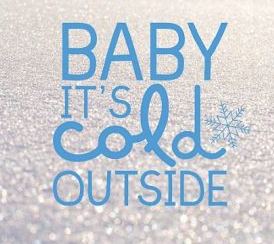
A dangerously cold and wintry arctic air mass has been gripping much of the Eastern two-thirds of the USA all day today.
This frigid Friday air mass will set the stage for a wintry mess of snow, sleet, and freezing rain across parts of the Carolinas and the Delmarva Peninsula through Saturday morning, with single digits expected.
The frozen precipitation may result in dangerous travel conditions and scattered power outages.
The winter storm was forecast to bring a miserable mix of snow, sleet and freezing rain to parts of the Southeast into early Saturday. The winter storm could ice over a large swath of eastern North Carolina and the northeastern corner of South Carolina, while dumping snow around Norfolk, Virginia.
The heart of the storm's snow will focus on a region spanning from northeastern North Carolina to southeastern Virginia and the Atlantic beaches of Maryland, where 3 to 6 inches of snow was likely to fall. The storm should move into the Atlantic sometime on Saturday, however, temperatures below freezing will mean untreated roads could remain slippery and hazardous.
WHAT...A period of stagnant air is expected to develop this weekend into next week, which could result in deteriorating air quality next week. *
WHERE...Coast Range of Northwest Oregon, Central Coast Range of Western Oregon, Lower Columbia, Greater Portland Metro Area, Central Willamette Valley, South Willamette Valley, Northern Oregon Cascade Foothills, Cascade Foothills in Lane County, Upper Hood River Valley, and Central Columbia River Gorge. *
WHEN...From 8 AM Sunday to 4 PM PST Wednesday. *
Poor air quality may cause issues for people with respiratory problems. Local jurisdictions may have wood-burning restrictions in place. Check with your county or local air agency for more information.
People with respiratory illness should follow their physician`s advice for dealing with high levels of air pollution during periods of stagnant air. State air quality agencies highly recommend that no outdoor burning occur and that residential wood burning devices be limited as much as possible. According to state air quality agencies, prolonged periods of stagnant air can hold pollutants close to the ground where people live and breathe. Check with your local burn agency for any current restrictions in our area.